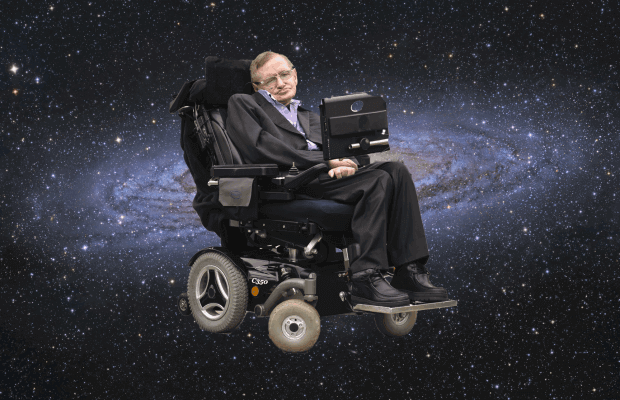Stephen Hawking is perhaps the most famous living scientist of our time. His prestige is probably only comparable to albert Einstein’s of his time. His fame is mainly due to his opinion on the origin of the universe and the laws of physics involved in this process.
But his prestige is also due to the courage with which he struggles to overcome the difficulties of the disease he suffers, a condition that was not an obstacle to lead a particularly busy life for a man with so many limitations, that for some, this situation has resulted in even contributing to him appearing a star by the different means.
- One of his best-known books was “A Brief History of Time.
- ” which quickly became a bestseller.
- Selling more than ten million copies.
- It was then adapted into a film.
- Hawking is admirable not only for his intellectual achievements.
- But also for having fulfilled them in the midst of so many difficulties.
- Undoubtedly.
- His magnetism is the result of his vulnerability.
- His courage and his brilliance.
Stephen Hawking was born in January 1942 in London, exactly three hundred years after Galileo’s death, a fact Hawking played a lot with. He belonged to an “eccentric” family, said the youngest of his brothers, Edward. His father was a doctor, and he spent most of his time in Africa, dedicated to scientific research.
Hawking was just a teenager when he made the decision to study math and physics. He enrolled in Oxford at the age of 17. He was popular with his colleagues for his intelligence and had a reputation for not spending much time studying. Bridge and ran with his friends.
After several years scattered and without showing a special dedication to his studies, his grades were good. Hawking’s chosen university was Cambridge, which required an excellent average. He spoke sincerely in his interview when he said, “If you give me excellent, I’ll go to Cambridge, so extraordinary, I’ll stay at Oxford. I hope you give me an excellent one.
As a scientist, his career began more than 25 years ago, precisely at the University of Cambridge, perhaps he was the scientist who did the most to get closer to understanding the universe, his theoretical work on black holes and his advances in knowledge about the universe. origin and nature of the universe are avant-garde and, without a doubt, revolutionary.
At the age of 21, Hawking was diagnosed with a degenerative disease, known as motor neurone disease or IT. This problem confined him to a wheelchair for most of his life, Hawking has not allowed the disease to be an obstacle to his scientific development, in fact, his pathology freed him from any routine so that he could devote himself to scientific research.
Hawking avoids talking about his physical disabilities and avoids commenting on his personal life, especially wants to be remembered as a scientist, as a writer, as an announcer of science and as a person like any other, with dreams, impulses, desires. ambitions.
When he was diagnosed with Hawking’s disease, he was told it was more common in the elderly, however, he was only 20 years old. In any case, the disease progressed rapidly and doctors did not give it more than two years to live. Then the star man sank into a deep depression and listened to Richard Wagner over and over again.
After two years, things stabilized for Hawking in terms of health. She decided to marry Jane Wilde, with whom she later had three children. Hawking continued his research, surpassing even the devastating physical deterioration of his illness. In 1969, he was permanently relegated to a wheelchair. This situation made him completely dependent on a third person.
In 1979 he was elected to the Lucasian Chair in Mathematics at the University of Cambridge, a chair given by Isaac Newton in his day, then underwent an emergency tracheostomy and in 1985 he completely lost the ability to speak. is limited to a voice synthesizer suitable for your wheelchair.
Stephen Hawking recounts, in a good mood, a funny scene that took place at the Vatican: at the end of a cosmology congress held there, the rapporteurs had an audience with the Pope, who expressed an interest in the study of the Big Bang and the later ones. evolution of the universe, declaring that it was God’s creation and work.
Stephen Hawking said he was happy because the Pope understood the presentation he had just made and talked about “the possibility that space-time is infinite, but without kinds of limits. “In other words, I just said that the universe had no beginning, that there was no time for creation. That’s why he was glad the Pope didn’t understand and said he “didn’t want to share Galileo’s fortune. “

